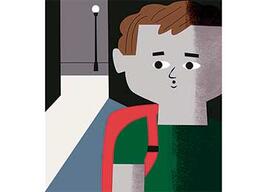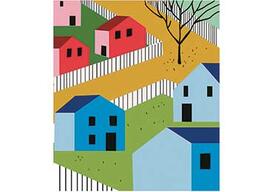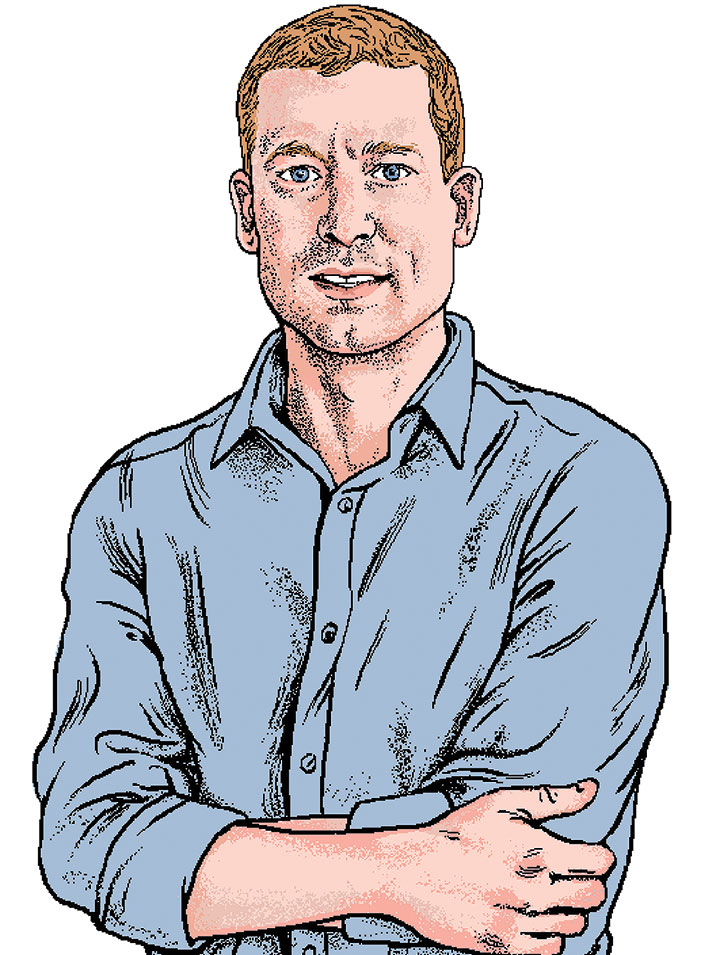Patrick Sharkey’s parents were public-school teachers in several low-income school systems during his childhood. “They had a strong commitment to leveling the playing field through the public education system,” says Sharkey. That commitment was passed down to their three sons: Two now work in public education, and Sharkey studies the causes of urban inequality.
His 2013 book, Stuck in Place: Urban Neighborhoods and the End of Progress Toward Racial Equality, revealed that an important factor in persistent generational racial inequality is the divide between where black and white families live. He cited a 2000 study that found black families making at least $100,000 were more likely to live in disadvantaged neighborhoods than white families — including white families earning $30,000 or less.
Now a professor of sociology and public affairs at the Woodrow Wilson School, Sharkey is a leading authority on urban policy, crime, and violence.
Sharkey’s Studies: A Sampling

THE CRIME DECLINE
Crime rates have dropped in many urban centers over the last 25 years. In his 2018 book Uneasy Peace: The Great Crime Decline, the Renewal of City Life, and the Next War on Violence, Sharkey highlights how neighborhood nonprofits contributed to the decrease, an explanation overlooked by those citing aggressive policing and lengthier prison sentences as crucial factors. “There was an explosion of community organizations,” he says. “It was residents in the communities hit hardest that came together to take back public spaces.” He found the most essential groups cleaned up neighborhoods, provided after-school programs, treated drug addiction, and offered services for ex-offenders.

VIOLENT REPERCUSSIONS
To understand how each incident of violence in a community affects children, Sharkey compared test results for kids in the same neighborhood who were given an assessment of cognitive skills right before or after a homicide occurred nearby. “Those given the assessment just after the incident looked like they had missed about two years of schooling,” he says. “Their test performance plummeted. The threat of violence doesn’t make them less intelligent, but it occupies their mind. If you are worried about being jumped on your way to school, it’s much more difficult to show up and take a pop quiz.”

PHYSICAL ALTERATIONS
Sharkey’s new work examines how some Americans have distanced themselves from society’s problems. By forming new local governments and school systems, erecting gated communities, and enacting new land-use regulations, these newly formed communities alter their physical and social settings — literally. By allowing people “to isolate themselves from social problems instead of solving them,” he says, “we quarantine problems in certain areas, so people don’t have an incentive to work together to solve them.”












2 Responses
Charles S. Rockey Jr. ’57
5 Years AgoGated Communities and Security
Sociology professor Patrick Sharkey decries how some Americans have distanced themselves from society’s problems. He specifically admonishes those who “erect gated communities.”
I am 84 years old and my wife is 80. We no longer are able to defend ourselves. Living in a gated community provides comforting security. Perhaps Professor Sharkey will understand that when he gets old.
Norman Ravitch *62
5 Years AgoDon’t Expect People To Take the Advice of Sociologists
While there are many things that could be better about how and where and among whom we dwell please don’t expect these things to happen. People put their own sense of safety and comfort first, not that of others. Race remains a divide based not only on experience, bad ones, but on gut feelings and of course on prejudice. Prejudice, unfortunately, is also based on deep feelings based on some experience and many fears. Solutions for racism expect things which people will not readily accept, no matter the propaganda from the media, the television ads, and all the rest. It would be better if sociologists concentrated on accepting people as they are and trying to mitigate their gut feelings rather than eliminating them entirely. In other words, ideology doesn’t work, reality might. Perhaps nothing in the end will.